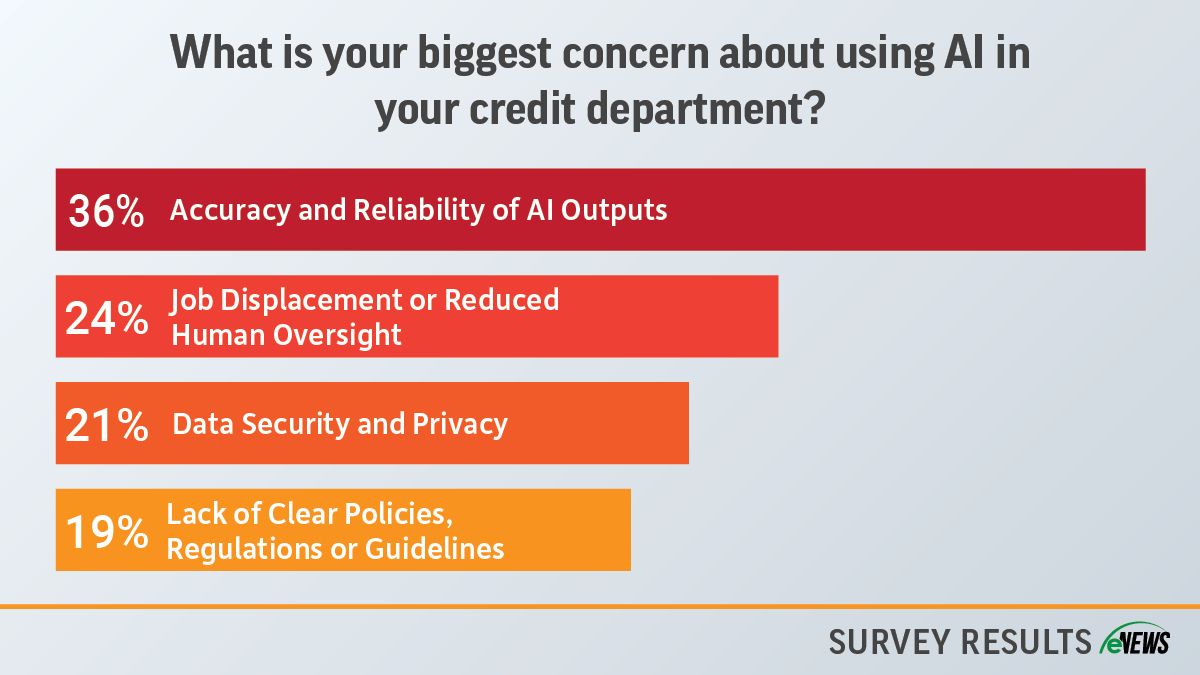eNews, Technology
ChatGPT: The Credit Manager’s Assistant

In the rapidly evolving landscape of artificial intelligence, ChatGPT stands as a pioneering and transformative force. Developed by OpenAI, this state-of-the-art conversational AI system has ushered in a new era of human-machine interaction. With its remarkable capacity to comprehend and generate natural language text seamlessly, ChatGPT has emerged as a game-changer across various industries. This article delves into the fascinating world of ChatGPT, exploring its capabilities, applications, and the profound impact it is having on our daily lives.
In fact, the paragraph above is completely written by ChatGPT. At my request, ChatGPT provided me instantaneous results and followed my suggestion for a more journalistic style. Not only did it save me time from writing an intro paragraph, but it allowed me to focus on the body of the story. But it doesn’t automatically adhere to NACM’s in-house writing rules (we don’t use Oxford commas) and it also lacked authenticity. ChatGPT also cannot interview my sources and pull quotes.
Just as ChatGPT can help writing professionals when used strategically, it can also be a tool for credit professionals. One in every four credit managers are already leveraging ChatGPT in some capacity for work, according to an eNews poll. If you are not experimenting with the AI tool, you risk falling behind the curve.
How ChatGPT Assists Trade Creditors
ChatGPT assists trade credit professionals in the rapid gathering of information, which saves time from the rigorous research required to onboard new customers. “I will use ChatGPT to avoid reading through lots of information on different websites that may be repeated on several regular search results,” said Chantal Rousseau, CCP, corporate credit director at MPG Canada (Marieville, QC). “For example, if I need to know the relation between two entities or if I am looking for the owner of a corporation.”
One of the biggest ways ChatGPT can help save time in the credit department is by writing emails, contracts or dunning letters. “I use it to generate ideas and write more professionally as it can craft sentences in different ways,” said Elliott Jenneman, CCE, regional credit manager at McNeilus Steel, Inc. (Dodge Center, MN). “By providing a bullet list of the facts, the system can write an email asking a customer for a payment. But I make sure not to copy it verbatim as it tends to use a lot of corporate jargon.”
The AI system can define concepts and answer complex questions from risk mitigation to mathematical equations, ultimately leading to better credit decisions. Alejandro Ojeda-Nonzioli, CCE, eastern regional credit manager at Schlumberger Technology Corporation (Oklahoma City, OK), uses ChatGPT when establishing corporate relationships between subsidiaries and parent companies. “Before, we relied on credit agencies and other providers for information, but you’d have to scroll through menus and different options which can be very time-consuming,” he said. “ChatGPT helps me find out how subsidiaries and companies are related or what their corporate structure and management are like, and so on.”
ChatGPT also has the ability to identify holes in contracts which can be beneficial in the credit application process. For example, if you want to avoid indemnity clauses, ChatGPT may be able to help comb through contract language. “Although ChatGPT wasn’t designed to identify holes in smart contracts, it has been demonstrated to find contract flaws,” reads an article by Malwarebytes. “Experts say that ChatGPT’s ability to identify contract flaws will only improve with advancements.”
Concerns with ChatGPT
From misinformation to missed cultural cues, ChatGPT is no stranger to mistakes. After all, the information on ChatGPT is only updated to September 2021. “One time, I asked ChatGPT to explain what a FRISK score was for a colleague of mine, which is one of the creditworthiness statistics that Credit Risk Monitor (CRMZ) uses to measure probability of default or different percentages,” Ojeda-Nonzioli said. “But instead of saying that the highest risk was one out of 10, it confused itself and said the reverse. So, my colleague pointed out that one is the highest risk where 10 is the best score. A few minutes later, ChatGPT corrected itself and apologized. The rest of the information was correct, but as you can see, it’s a system that is able to learn from its mistakes, which to me was very surprising.”
One of the biggest concerns for credit professionals is the security and confidentiality of ChatGPT. You should never type personal, business or customer information into ChatGPT. “My company has not implemented it yet because of the security risks,” said Martin Smith, CCE, CICP, credit manager at Ash Grove Cement Company (Sumterville, FL). “But I use ChatGPT on my personal computer to pull a variety of news reports when making credit decisions.”
ChatGPT should not be used for information gathering without fact-checking it yourself. This tool is trained on patterns, not facts, which means it can be inaccurate if it picks up on fake citations. “I use the thought process of ‘trust but verify’ any and all information that I wasn’t the author of,” said Gweneth Weeks, operations manager at Big D Concrete Inc. (Dallas, TX), who uses ChatGPT to help write emails and the company policy handbook. “ChatGPT is not industry-specific and does not have the most current information, so double-checking facts, dates and guidelines is a must. Also, make sure you understand your company’s policies, state laws and audience.”
To avoid security breaches, ChatGPT provides a warning that it is an external site, so the user should not disclose any private or confidential information. “Let’s say I have a question about a particular financial ratio or financial statement, then I would just input those numeric values but not reveal the customer’s personal identifiers or information,” Ojeda-Nonzioli said. “It would all be theoretical questions. Other than that, we’re aware of our usage and make sure it complies with the corporate guidelines and policies of our company.”
It is key to be knowledgeable on how ChatGPT works and realistic about what it can and cannot do for you. “It’s not for everybody, but if you use it the right way, it can be beneficial,” Jenneman said. “AI helps significantly but it won’t replace the human aspect as we rely on building customer and departmental relationships.”





